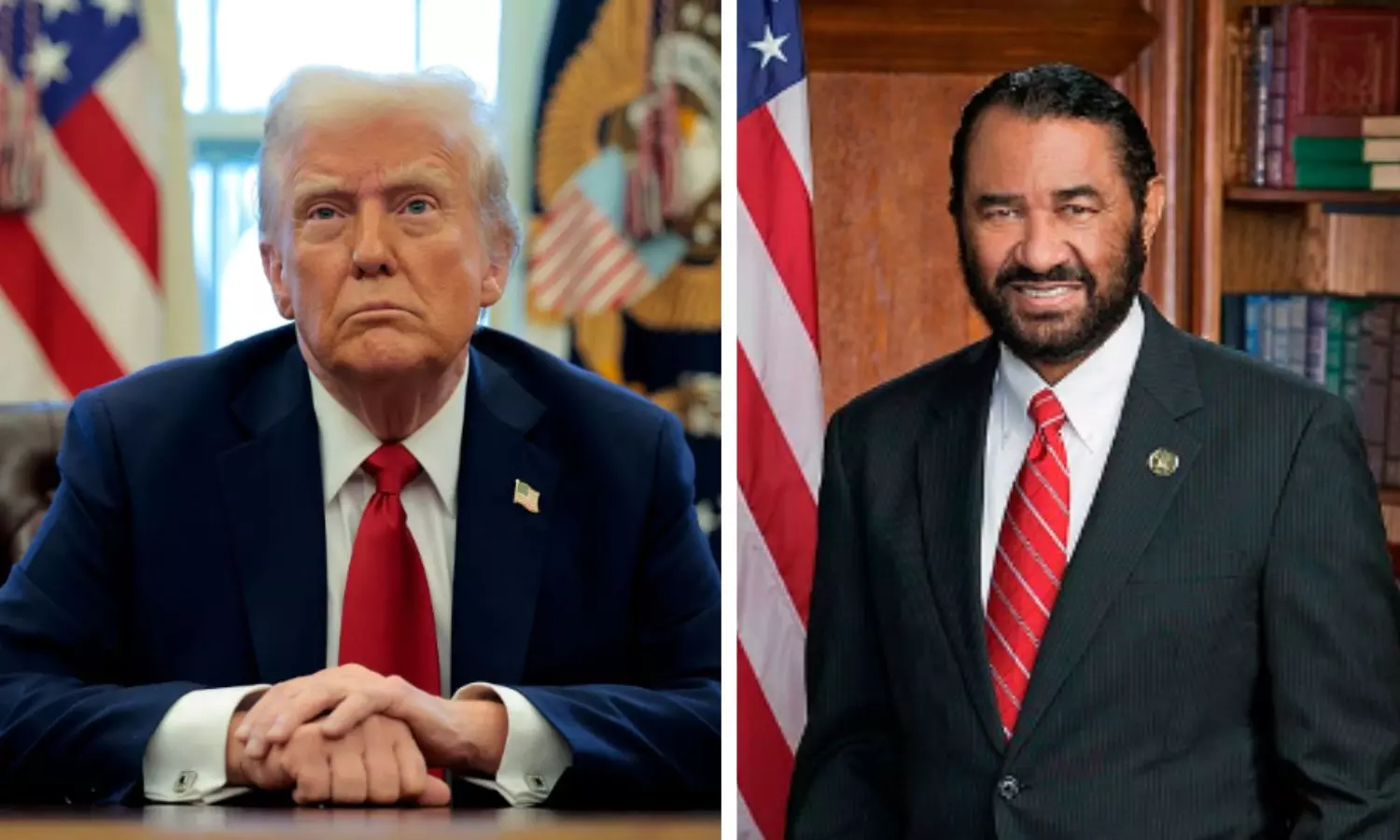Rep. Al Green Removed from House Chamber During Trump’s Address
Democratic lawmaker disrupts Trump’s speech, opposing proposed Medicaid cuts and challenging his claims of a mandate

In a dramatic show of dissent during President Donald Trump’s address to Congress, Democratic Representative Al Green of Texas was removed from the House chamber after vocally protesting the president’s claims of an electoral mandate.
The incident unfolded as President Trump discussed his electoral victory and unveiled proposed policy changes. As Trump continued his speech, Green shouted “no mandate,” publicly voicing his opposition to the president’s plans, particularly his proposed cuts to essential social programs like Medicaid, which supports approximately 79 million Americans.
Despite repeated calls for order, Green persisted in his protest, which led to House Speaker Mike Johnson instructing the sergeant-at-arms to escort the Texas congressman out of the chamber. As he was led away, Green continued to express his objections, while several of his Democratic colleagues held signs bearing messages like “No King!” and “Save Medicaid.”
Following his removal, Green addressed reporters, emphasizing the importance of standing up against policies he believes harm vulnerable populations. He stated, "I could not, in good conscience, remain silent while the president proposes cuts that would devastate millions."
This incident is a part of a broader trend of heightened tensions within Congress, particularly during presidential addresses. Several Democratic lawmakers have used protests, including walkouts and public statements, to express their disapproval of the administration’s policies.
Despite the disruption, Trump’s speech, lasting 100 minutes—the longest on record—continued uninterrupted. In his remarks, Trump criticized Democrats for their lack of support and reiterated his commitment to his policy agenda. The removal of Rep. Green highlights the deepening partisan divisions in the political landscape and underscores the challenges that lie ahead for bipartisan cooperation on critical issues.

